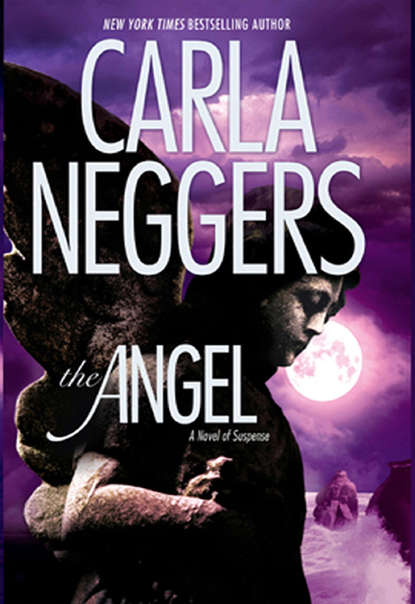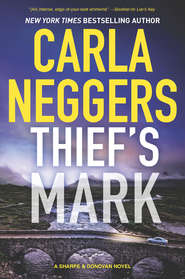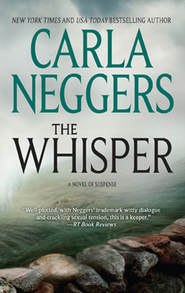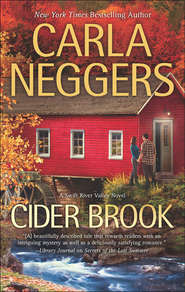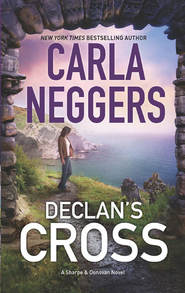По всем вопросам обращайтесь на: info@litportal.ru
(©) 2003-2025.
✖
The Angel
Автор
Год написания книги
2019
Настройки чтения
Размер шрифта
Высота строк
Поля
8:30 p.m., EDT
June 17
Not for the first time in his life, Simon Cahill found himself in an argument with an unrelenting snob, this time in Boston, but he could as easily have been in New York, San Francisco, London or Paris. He’d been to all of them. He enjoyed a good argument—especially with someone as obnoxious and pretentious as Lloyd Adler.
Adler looked to be in his early forties and wore jeans and a rumpled black linen sport coat with a white T-shirt, his graying hair pulled back in a short ponytail. He gestured across the crowded, elegant Beacon Hill drawing room toward a watercolor painting of an Irish stone cottage. “Keira Sullivan is more Tasha Tudor and Beatrix Potter than Picasso, wouldn’t you agree, Simon?”
Probably, but Simon didn’t care. The artist in question was supposed to have made her appearance by now. Adler had griped about that, too, but her tardiness hadn’t seemed to stop people from bidding on the two paintings she’d donated to tonight’s auction. The second was of a fairy or elf or some damn thing in a magical glen. Proceeds would go to support a scholarly conference on Irish and Irish-American folklore to be held next spring in Boston and Cork, Ireland.
In addition to being a popular illustrator, Keira Sullivan was also a folklorist.
Simon hadn’t taken a close look at either of her donated paintings. A week ago, he’d been in Armenia searching for survivors of a moderate but damaging earthquake. Over a hundred people had died. Men, women, children.
Mostly children.
But now he was in a suit—an expensive one—and drinking champagne in the first-floor chandeliered drawing room of an elegant early nineteenth-century brick house overlooking Boston Common. He figured he deserved to be mistaken for an art snob.
“Beatrix Potter’s the artist who drew Peter Rabbit, right?”
“Yes, of course.”
Simon swallowed more of his champagne. It wasn’t bad, but he wasn’t a snob about champagne, either. He liked what he liked and didn’t worry about the rest. He didn’t mind if other people fussed over what they were drinking—he just minded if they were a pain in the ass about it. “When I was a kid, my mother decorated my room with cross-stitched scenes of Peter and his buddies.”
“I beg your pardon?”
“Cross-stitch. You know—you count these threads and—” Simon stopped, deliberately, and shrugged. He knew he didn’t look like the kind of guy who’d had Beatrix Potter rabbits on his wall as a kid, but he was telling the truth. “Now that I’m thinking about it, I wonder what happened to my little rabbits.”
Adler frowned, then chuckled. “That’s very funny,” he said, as if he couldn’t believe Simon was serious. “Keira Sullivan is good at what she does, obviously, but I hate to see her work overshadow several quite interesting pieces here tonight. A shame, really.”
Simon looked at Adler, who suddenly went red and bolted into the crowd, mumbling that he needed to say hello to someone.
A lot of his arguments ended that way, Simon thought as he finished off his champagne, got rid of his empty glass and grabbed a full one from another tray. The event was catered, and most of the guests were dressed up and having a good time. From what he’d heard, they included a wide range of people—academics, graduate students, artists, musicians, folklorists, benefactors, a couple of priests and a handful of politicians and rich art collectors.
And at least two cops, but Simon steered clear of them.
“Lloyd Adler’s not that easy to scare off,” Owen Garrison said, shaking his head as he joined Simon. Owen was lean and good-looking, but all the Garrisons were. Simon was built like a bull. No other way to say it.
“I’m on good behavior tonight.” He grinned, cheekily putting out his pinkie finger as he sipped his fresh champagne. Owen just rolled his eyes. Simon decided he’d probably had enough to drink and set the glass on a side table. Too much bubbly and he’d start a fight. “I didn’t say a word.”
“You didn’t have to,” Owen said. “One look, and he scurried.”
“No way. I’m charming. Everyone says so.”
“Not everyone.”
Probably true, but Simon did tend to get along with people. He was at the reception as a favor to Owen, whose family, not coincidentally, owned the house where it was taking place. The Garrisons were an old-money family who’d left Boston for Texas after the death of Owen’s sister, Dorothy, at fourteen. It was a hellish story. Just eleven himself at the time, Owen had watched her fall off a cliff and drown near the Garrison summer home in Maine. There was nothing he could have done to save her.
Simon suspected the trauma of that day was the central reason Owen had founded Fast Rescue, an international search-and-rescue organization. It was based in Austin and operated on mostly private funds to perform its central mission to put expert volunteer teams in place within twenty-four hours of a disaster—man-made or natural—anywhere in the world.
Simon had become a Fast Rescue volunteer eighteen months ago, a decision that was complicating his life more than it should have, and not, he thought, because the Armenian mission had fallen at a particularly awkward time for him.
Owen, a top search-and-rescue expert himself, was wearing an expensive suit, too, but he still looked somewhat out of place in the house his great-grandfather had bought a century ago. The decor was in shades of cream and sage green, apparently Dorothy Garrison’s favorite colors. The first floor was reserved for meetings and functions, but the second and third floors comprised the offices for the foundation named in Dorothy’s honor and dedicated to projects her family believed would have been of particular interest to her.
Owen glanced toward the door to the house’s main entry. “Still no sign of Keira Sullivan. Her uncle’s getting impatient.”
Her uncle was Bob O’Reilly, her mother’s older brother and one of the two cops there tonight Simon was avoiding. Owen’s fiancée, Abigail Browning, was the other one. She and O’Reilly were both detectives with the Boston Police Department. O’Reilly was a beefy, freckle-faced redhead with a couple decades on the job. Abigail was in her early thirties, slim and dark-haired, a rising star in the Homicide Unit.
She was also the daughter of John March, the director of the Federal Bureau of Investigation and the reason Simon’s association with Fast Rescue had become complicated. He used to work for March. Sort of still did.
He’d decided to avoid Abigail and O’Reilly because both of them would have a nose for liars.
“Any reason to worry about your missing artist?” he asked Owen.
“Not at this point. It’s pouring rain, and the Red Sox are in town—rained out by now, I’m sure. I imagine traffic’s a nightmare.”
“Can you call her?”
“She doesn’t own a cell phone. No phone upstairs in her apartment, either.”
“Why not?”
“Just the way she is.”
A flake, Simon thought. He’d learned, not that he was interested, that Keira was renting a one-bedroom apartment on the top floor of the Garrison house until she figured out whether she wanted to stay in Boston. He understood wanting to keep moving—he lived on a boat himself and not by accident.
“Abigail’s bidding on one of Keira’s pieces,” Owen said.
“The fairies or the Irish cottage?”
“The cottage, I think.”
They were imaginative, cheerful pieces. Keira had a flare for capturing and creating a mood—a part-real, part-imagined place where people wanted to be. Her work wasn’t sentimental, but it wasn’t edgy and self-involved, either. Simon didn’t have much use for a painting of fairies or an Irish cottage in his life. No house to hang it in, for one thing.
Irish music kicked up, and he noticed an ensemble of young musicians in the far corner, obviously enjoying themselves on their mix of traditional instruments. He picked out a tin whistle, Irish harp, bodhran, mandolin, fiddle and guitar.
Not bad, Simon thought. But then, he liked Irish music.
“The girl on the harp is Fiona O’Reilly,” Owen said. “Bob’s oldest daughter.”
Simon wasn’t sure he wanted to know any more about Owen’s friends in Boston, especially ones in, or related to, people in law enforcement. It was all too tricky. Too damn dangerous. But here he was, playing with fire.
Owen’s gaze drifted back to his fiancée, who wore a simple black dress and was laughing and half dancing to the spirited music. Abigail caught his eye and waved, her smile broadening. They were working on setting a date for their wedding. Whenever it was, Simon planned to be out of the country.
“You can’t tell her about me, Owen.”
“I know.” He broke his eye contact with Abigail and sighed at Simon. “She’ll find out you’re not just another Fast Rescue volunteer on her own. One way or the other, she’ll figure out your relationship with her father—she’ll figure out that I knew and didn’t tell her. Then she’ll hang us both by our thumbs.”
“We’ll deserve it, but you still can’t tell her. My association with March is classified. We shouldn’t even be talking about it now.”





